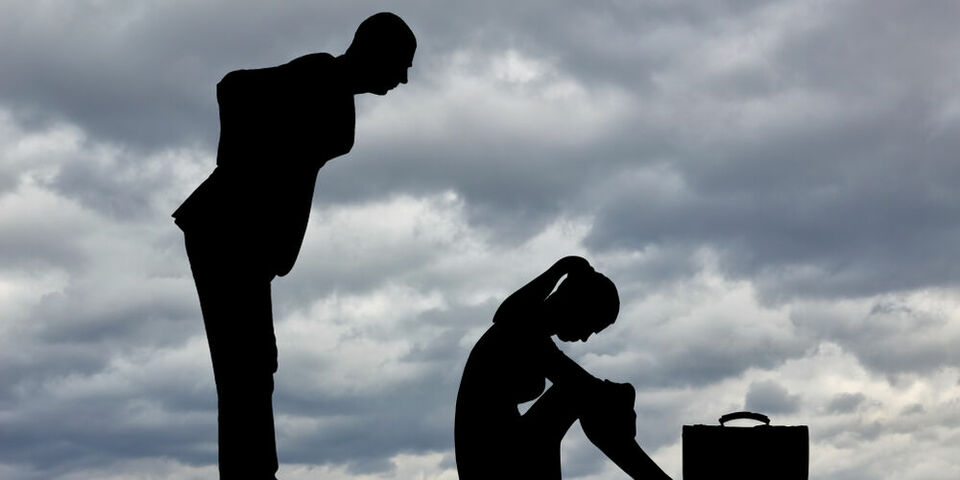Unacceptable behavior: as a bystander what do you do?
A colleague is shouted at by their manager. Fellow students roll their eyes when a certain group member starts to speak. ‘Harmless jokes’ about homosexuality. What do you do if you witness this kind of thing? Or if you realize only later: what happened back there was not okay? Diversity Week offers three chances to take an online training course that will help you react appropriately when you see unacceptable behavior.
The barrier to standing up for someone who is the target of unacceptable behavior can be considerable, tells trainer Lindsey Maouhoub. Via Teams on Monday morning she is teaching Active Bystander Training to some thirty members of the TU/e community. The training, offered by the WISE network, is part of Diversity Week at TU/e.
An important reason why people do not stand up for each other in the workplace is that they fear they will be left unsupported by management. This is why Maouhoub opens her presentation with a slide showing statements of support by, among others, Evangelia Demerouti, TU/e’s Chief Diversity Officer.
Surely it's possible!
But this is not the only reason for doing nothing. Perhaps a strong group culture is dominant à la: ‘What do you mean sexism/racism? Surely it's possible to make a joke!’ Perhaps you are worried it will impact your career chances if you get labeled as the troublesome person in the department. Or perhaps you are unconsciously conforming to the behavior of the ‘herd’, none of whose members are making a move to intervene. Maouhoub illustrates this last point with a short film in which actors at a busy station slump ‘ill’ to the ground on a stairway. Many minutes pass before someone offers any help, but as soon as the first person does, others follow suit.
Active Bystander Training gives you four tools (‘the four d’s’) for taking action when you see something happen that is just not okay. Because, Maouhoub is keen to stress, it is often the case that a single person stating what is happening is all it takes. She mentions notorious examples like Harvey Weinstein's abuse of power in Hollywood.
Workplace
The four d’s stand for: direct action, distraction, delegation and delay. If you witness unacceptable behavior – whether during a lecture, in the workplace or at a drinks party – choose one of these four strategies starting with d.
Which one you choose is not the issue, it is the fact that you do something. Provided one condition is met, emphasizes Maouhoub: your personal safety is maintained. If you feel unsafe – for example, if the threat of violence is present – first seek a place where your safety is guaranteed, and from there decide what to do next.
If you choose to take direct action, in response to an improper suggestion, for example, asking the speaker to explain what they mean exactly is often all it takes. If appropriate given the context, you could make a joke (back) at the person.
Coffee dispenser
If you are fearful that the target will feel even worse if the situation becomes ‘a thing’, you can choose to de-escalate by providing a distraction. You might ask for a copy of the meeting agenda or take the person with you to the coffee dispenser and once there check how they are doing.
When you delegate, you tell someone else what is going on, a person in a position of influence. And the ‘delay’ strategy means you revisit the situation, whether that is a day, a week or a month later. “It is never too late,” says Maouhoub. “That someone comes back to it might be the thing that makes all the difference to the targeted individual, giving them the courage to take steps.”
On Monday October 11th (13:30 till 14:45 PM) the last online Active Bystander Training is being held; TU/e students and employees can sign up.


Discussion